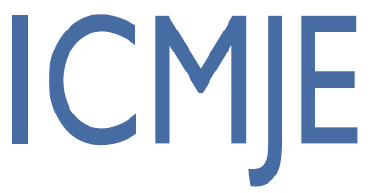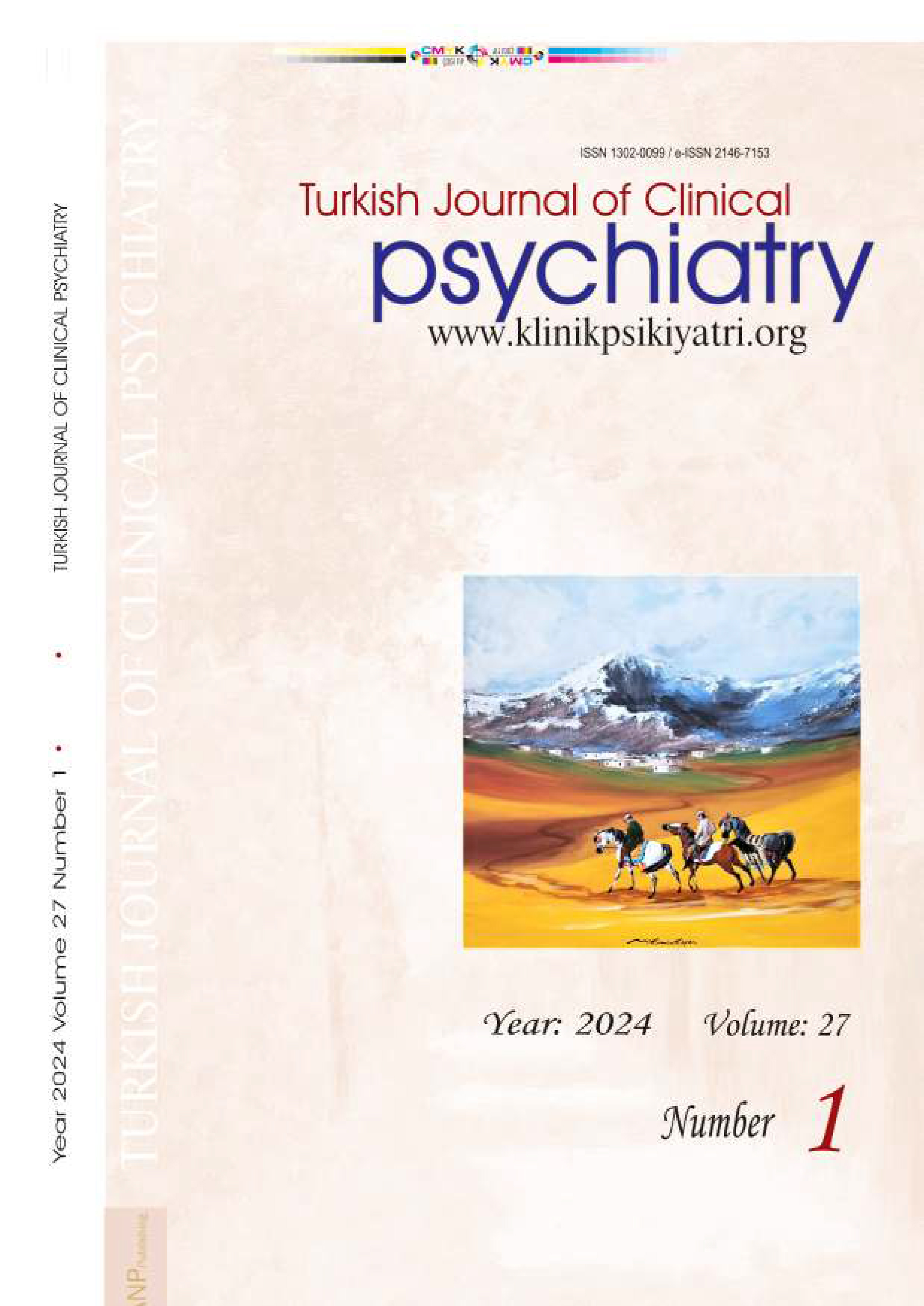





The association of occupational profile with job satisfaction, burnout, and depression in physicians from three different hospitals in Turkey (eng)
Başak Şahin1, Esra Musaoğlu2, Bilge Doğan3, Armağan Yıldırım4, Tayyibe Arslan5, Hasan Şahin61Department of Psychiatry, Faculty of Medicine,Canakkale Onsekiz Mart University,Canakkale,Turkey2Department of Psychiatry, Sakarya Yenikent State Hospital, Sakarya, Turkey
3Department of Psychiatry, Faculty of Medicine, Adnan Menderes University, Aydin,Turkey
4Department of Psychiatry, Ankara Dr Abdurrahman Yurtarslan Oncology Training and Research Hospital, Ankara, Turkey
5Department of Psychiatry, Balikesir State Hospital, Balıkesir, Turkey
6Department of Anesthesiology and Reanimation, Canakkale Onsekiz Mart University, Medicine Faculty, Canakkale, Turkey
INTRODUCTION: This study aimed to compare job satisfaction, burnout, and depression scores of medical doctors from different regions in Turkey.
METHODS: A cross-sectional study was performed during October 2013 in three cities from Turkey. Participants were asked to self-administer a demographic information questionnaire, the Minnesota Satisfaction Questionnaire (Internal work satisfaction-IWS and External work satisfaction-EWS), the Beck Depression Inventory (BDI), the Maslach Burnout Inventory (MBI), Maslach Emotional Exhaustion Score (MEES), and Maslach Personal Accomplishment Score (MPAS).
RESULTS: Mean (±SD) Total work satisfaction score was 66.2±12.6. 118 participants had BDI scores of 10 or less while 40 participants had 11 or higher scores. Proportions for poor depersonalization, emotional exhaustion, and personal accomplishment were 18.6% (n=29), 5.8% (n=9), and 81.9% (n=127) respectively. There were significant differences concerning some variables between the three cities. Most of the doctors in Şırnak and Hakkari were younger, single, and less experienced compared to the more developed Çanakkale (p<0.05).
DISCUSSION AND CONCLUSION: In a hierarchical regression analysis, independent of the other factors, MPAS and MEES were predictors of the total job satisfaction score. MPAS and MEES are the most significant independent variables affecting job satisfaction. Decreasing stressors and assuring a motivating and supportive environment may prove to be helpful in the enhancement of job satisfaction.
Keywords: Burnout, Depression, Developmental Indices, Job Satisfaction, Medical Doctors.,,,
Türkiyede üç farklı hastaneden hekimlerin iş tatmini, tükenmişlik ve depresyon ile iş profili ilişkisi (eng)
Başak Şahin1, Esra Musaoğlu2, Bilge Doğan3, Armağan Yıldırım4, Tayyibe Arslan5, Hasan Şahin61Çanakkale Onsekiz Mart Üniversitesi, Tıp Fakültesi, Psikiyatri AD, Çanakkale2Sakarya Yenikent Devlet Hastanesi Psikiyatri Kliniği, Sakarya
3Adnan Menderes Üniversitesi, Tıp Fakültesi, Psikiyatri AD, Aydın
4Ankara Dr. Abdurrahman Yurtarslan Eğitim ve Araştırma Hastanesi Psikiatri Kliniği, Ankara
5Balıkesir Devlet Hastanesi Psikiatri Kliniği, Balıkesir
6Çanakkale Onsekiz Mart Üniversitesi, Tıp Fakültesi, Anesteziyoloji ve Reanimasyon AD, Çanakkale
GİRİŞ ve AMAÇ: Bu çalışma Türkiye'deki farklı bölgelerden gelen tıp doktorlarının iş doyumu, tükenmişlik ve depresyon puanı düzeylerini karşılaştırmayı amaçlamıştır.
YÖNTEM ve GEREÇLER: Ekim 2013'te Türkiye'den üç şehirde kesitsel bir çalışma yapıldı. Katılımcılardan; bir demografik bilgi anketi, Minnesota Memnuniyet Anketi (Dahili iş memnuniyeti-IWS ve Harici iş memnuniyeti-EWS), Beck Depresyon Envanteri (BDI), Maslach Tükenmişlik Envanteri (MBI), Maslach Duygusal Tükenme Puanı (MEES) ve Maslach Kişisel Başarı Puanı (MPAS)’nı kendilerinin doldurması istendi.
BULGULAR: Ortalama (± SD) Toplam iş memnuniyeti puanı 66.2 ± 12.6 idi. Toplam 118 katılımcı BDI’dan 10 veya daha az puan alırken, 40 katılımcı 11 veya daha yüksek puan aldı. Yetersiz duyarsızlaşma, duygusal tükenme ve kişisel başarı oranları sırasıyla % 18,6 (n = 29) ,% 5.8 (n = 9) ve % 81.9 (n = 127) idi. şehirler. Şırnak ve Hakkari'deki doktorların çoğu daha gelişmiş olan Çanakkale'ye göre daha genç, bekâr ve daha az deneyimliydi (p <0.05).
TARTIŞMA ve SONUÇ: Bir hiyerarşik regresyon analizinde; diğer faktörlerden bağımsız olarak MPAS ve MEES toplam iş memnuniyeti puanının yordayıcılarıydı. MPAS ve MEES iş tatminini etkileyen en önemli bağımsız değişkenlerdir. Streslerin azaltılması ve motive edici ve destekleyici bir ortamın sağlanması, iş tatminini artırmada yardımcı olabilir.
Anahtar Kelimeler: Tükenmişlik, Depresyon, Gelişim Endeksleri, İş Tatmini, Tıp Doktorları.
Manuscript Language: English
(1451 downloaded)










